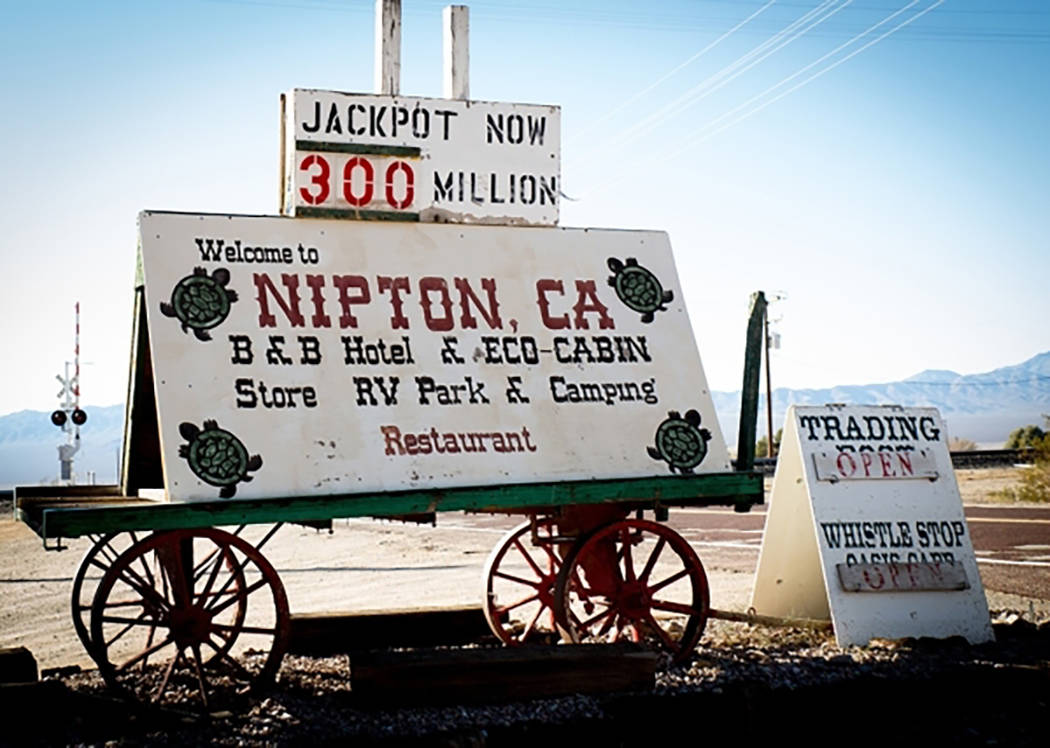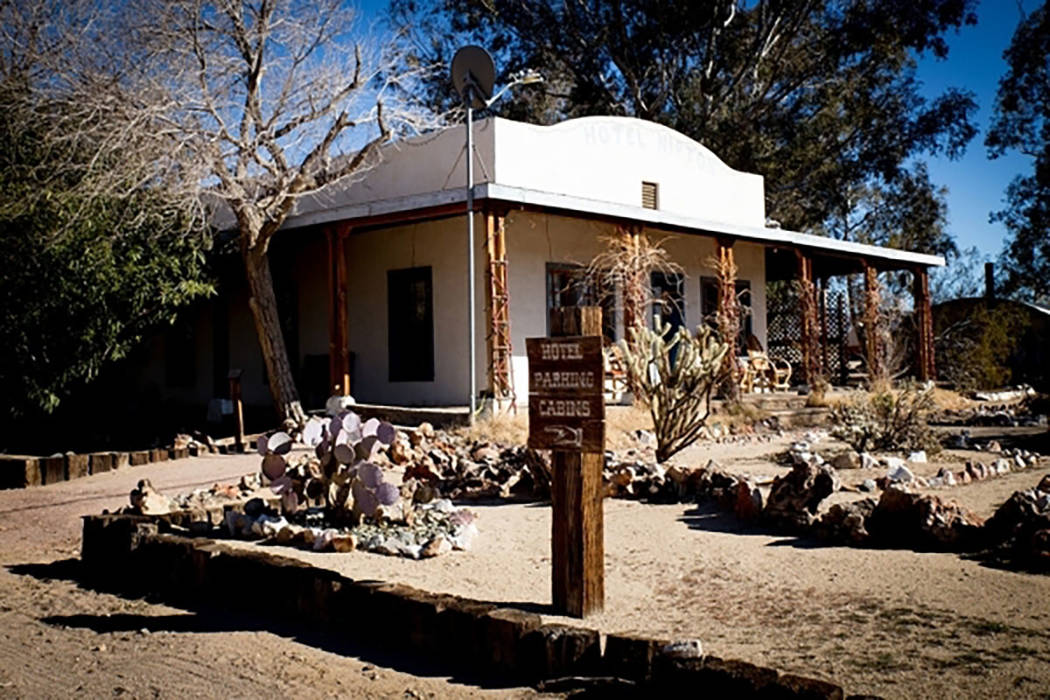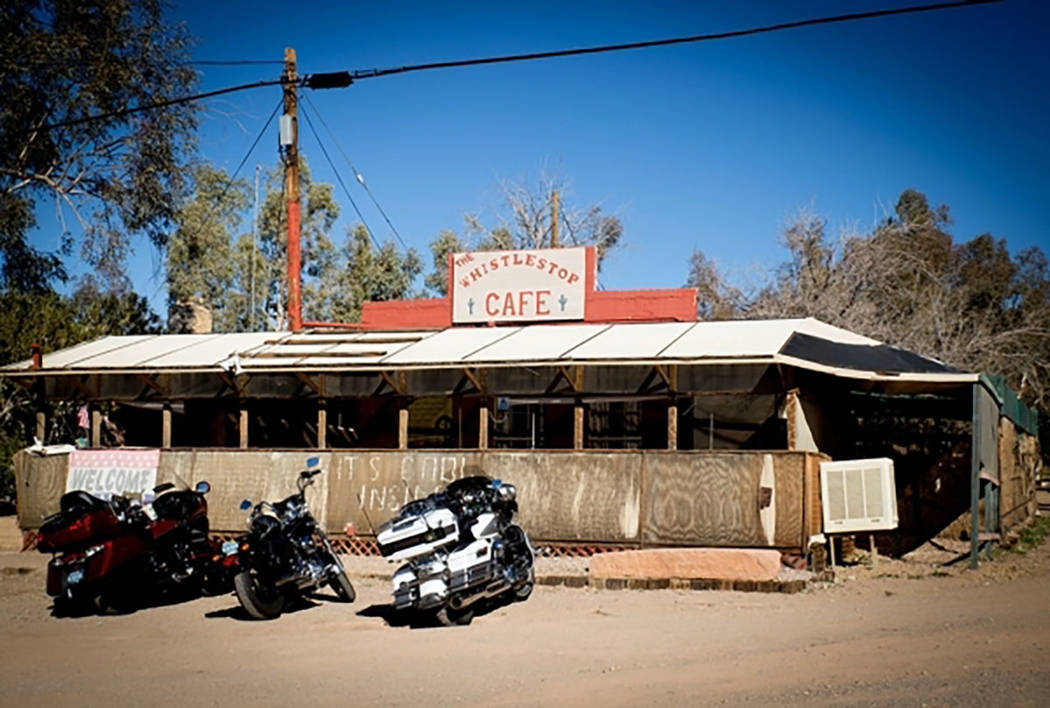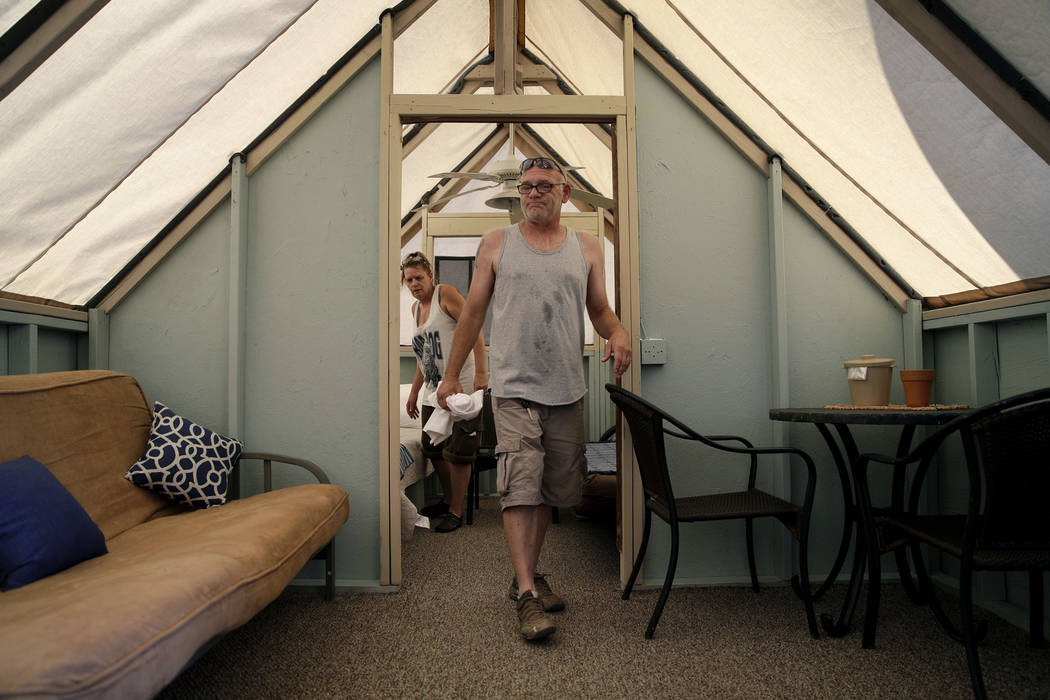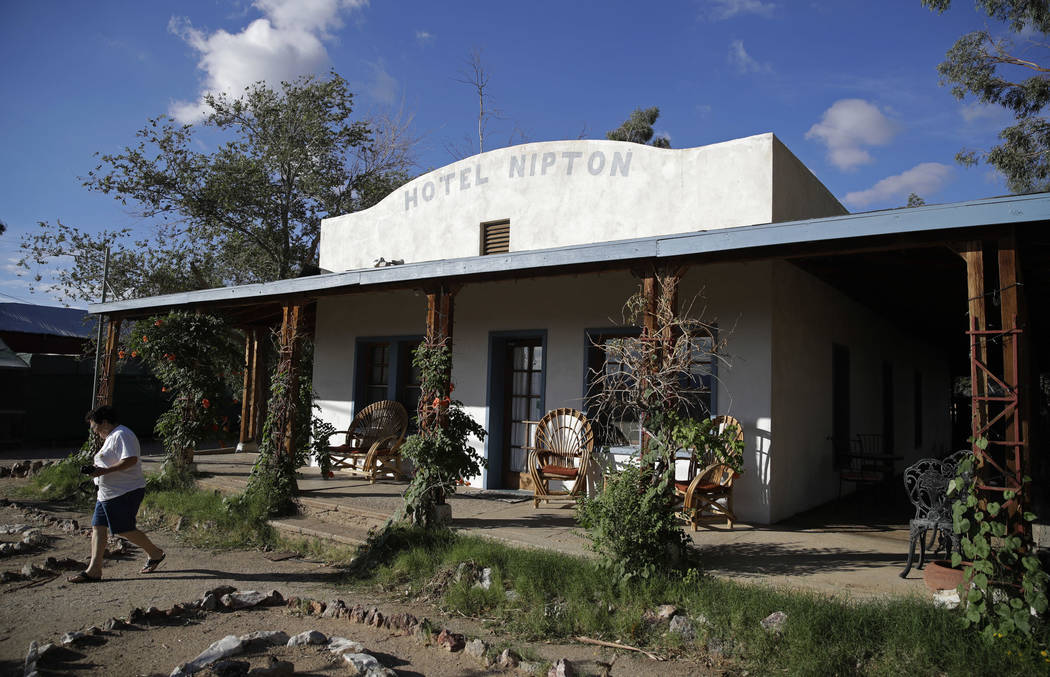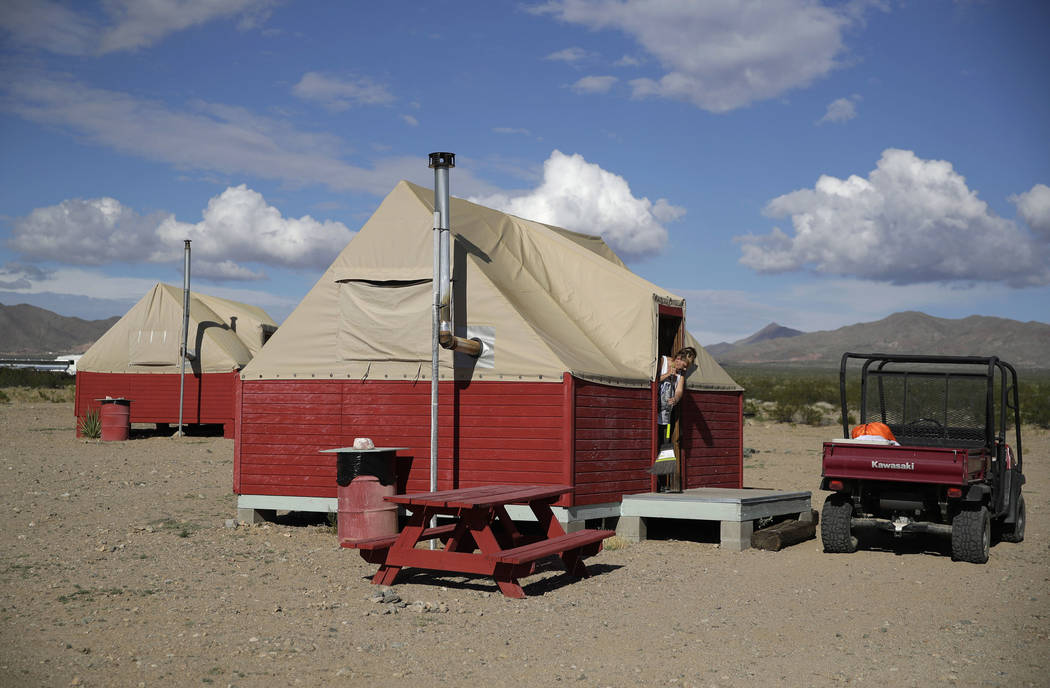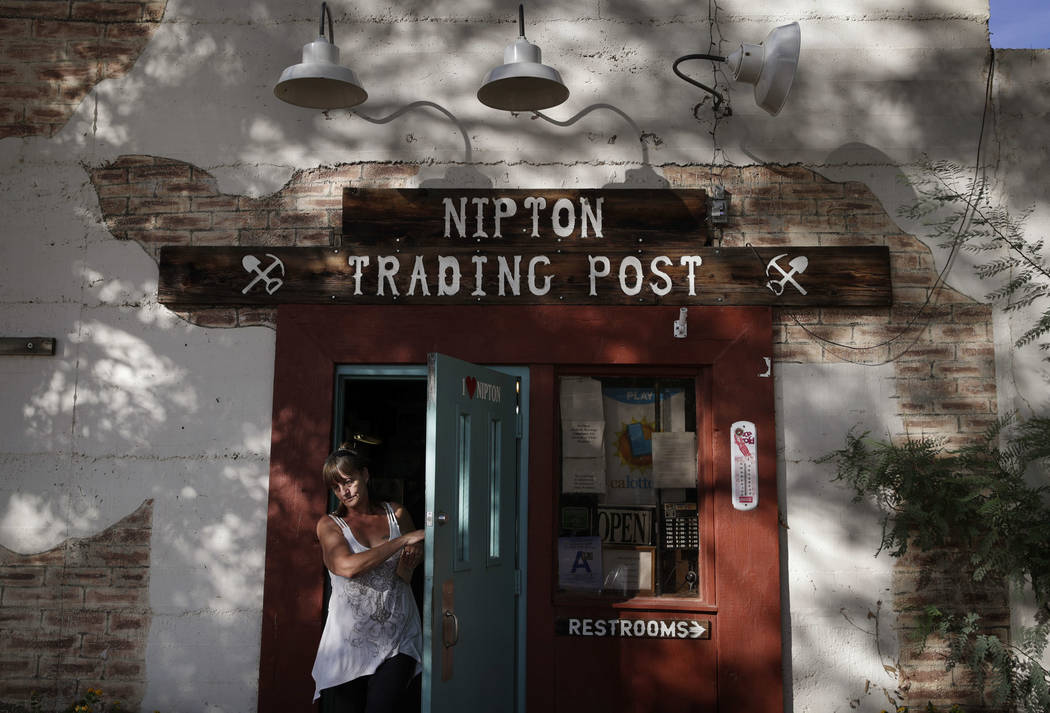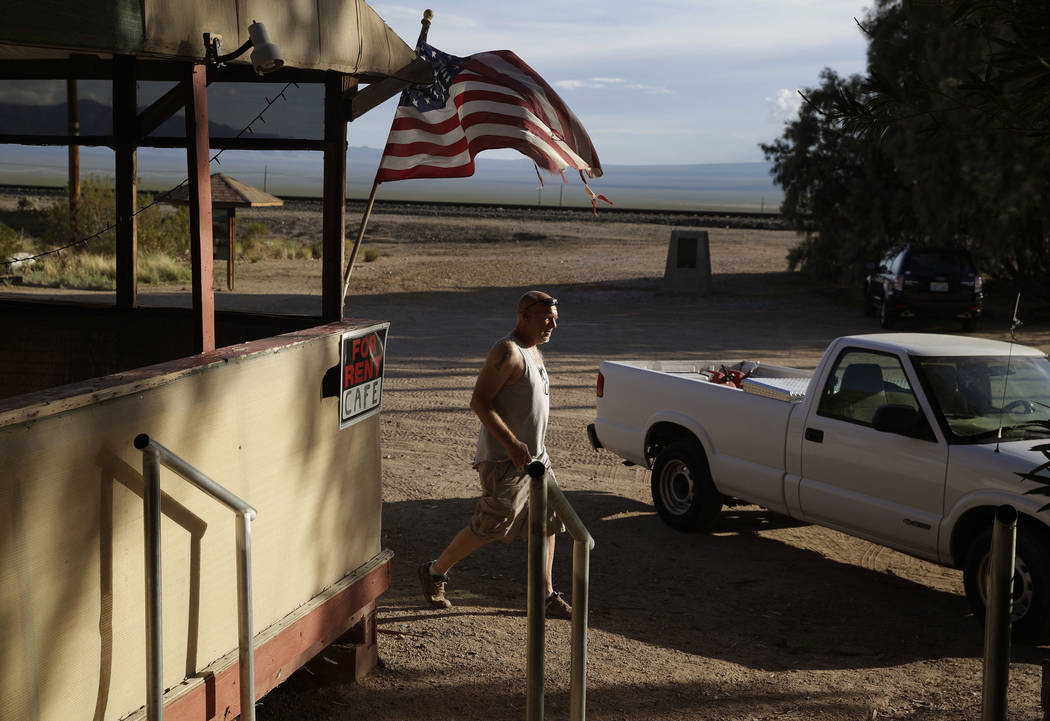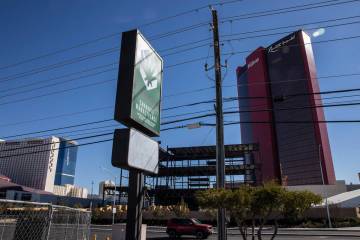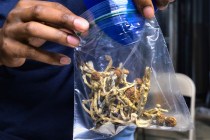Pot company buys entire California town
American Green Inc., a maker of cannabis products, is taking an unusual step to attract new customers as it capitalizes on California legalizing marijuana: It’s buying an entire town.
The company has acquired the tiny burg of Nipton, California, for about $5 million and plans to invest as much as $2.5 million over the next 18 months to create a pot-friendly tourist destination. The purchase includes 120 acres of land with a general store, a hotel, a school building and mineral baths.
American Green, based in Tempe, Arizona, will use the existing structures and build new ones — powered by renewable energy — to revitalize the town, said project manager Stephen Shearin. Ideally, the outpost will spawn imitators, he said.
“We thought that showing that there was a viable means of having a cannabis-friendly municipality and further making it energy independent could be a way of really inspiring folks to say, ‘Why can’t we do that here?’” he said.
The move shows how far marijuana has moved out of the shadows despite an uncertain federal policy outlook. With pot now legalized for recreational and medical use in California, Nevada and six other states, one in five American adults can consume the formerly taboo plant as they please. That’s created an opportunity for companies to try to make cannabis a more mainstream product.
Pamela Johnston, senior vice president at Electrum Partners, a cannabis industry advising and consulting firm, said restrictions on pot use and availability have limited tourism-related activities, but predicted it will be on par with other types of travel.
“But before we blink, it will soon outpace other niche affinity travel” like wine, she said.
Nipton, with a population of about 20, is situated in California’s San Bernardino County next to the Mojave National Preserve and just across the border from Nevada. It’s about three hours by car from Los Angeles and just an hour from Las Vegas. Temperatures soar to more than 100 degrees Fahrenheit in the summer months.
The former mining town already draws visitors due to its location on the road and railway between the major cities, Shearin said. He sees curiosity about weed drawing more.
Small towns have had mixed reactions to marijuana, even in states where it’s legal. That’s why American Green decided to take on the project: The company wants to demonstrate the benefits cannabis can provide.
American Green plans to include a new facility to manufacture water infused with CBD, the cannabis component that is typically associated with reducing pain and inflammation. The new Nipton will also have a production site for edible marijuana products, retail stores, and artist-in-residence programs.
The project reflects a shift toward making marijuana more appealing to a broader audience. This includes reaching beyond the stereotypical stoner aesthetic and making products with milder doses per serving size. American Green has also sought to expand sales by building a vending machine that uses biometric scanners to ensure customers are of age.
The industry needs this wider acceptance to fuel its growth. Cowen & Co., a provider of investment and banking services, is optimistic companies will succeed and forecasts the legal weed business growing to $50 billion by 2026 from $6 billion in 2016.
Even as companies seek to expand the market, they face a more existential threat — looming government intervention. While President Barack Obama implemented policy stating it would not go after operators in states where the plant had been legalized, the Trump administration is not a fan. Attorney General Jeff Sessions has made clear that he sees no use for the plant, saying at one point “it’s not a healthy substance.”
American Green, which trades over the counter for a fraction of a penny, had lost about half its value this year through Wednesday. That followed a rally in 2016 as more states moved to legalize the drug. The shares’ value jumped by more than 40 percent on Thursday, but are still worth well below 1 cent.
Companies like American Green are opting to hope for the best. As long as policy remains unchanged, Shearin expects the company’s investment will be returned and the town will be profitable.
“The Gold Rush built this city,” Shearin said. “The Green Rush can keep it moving the way people envisioned it years ago.”



